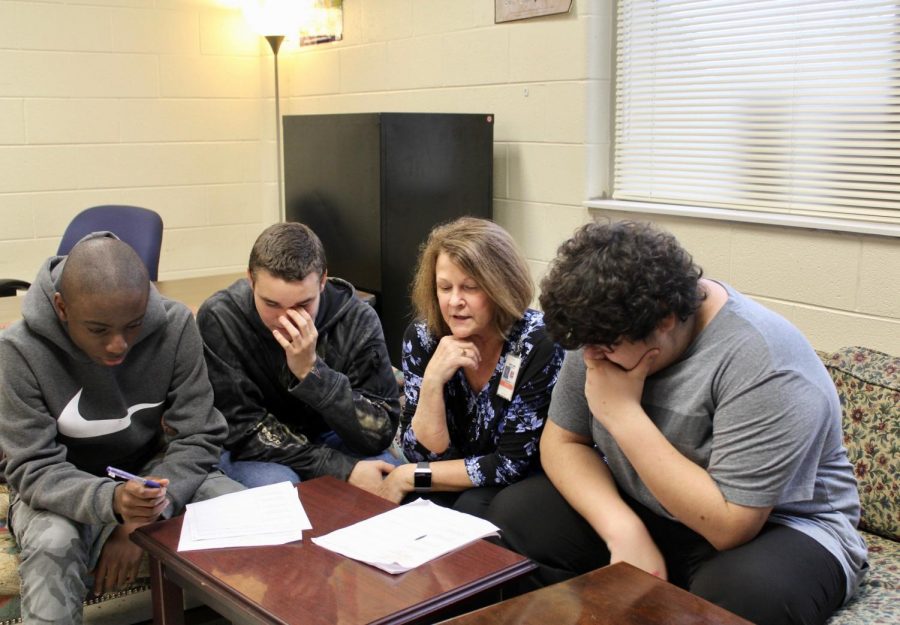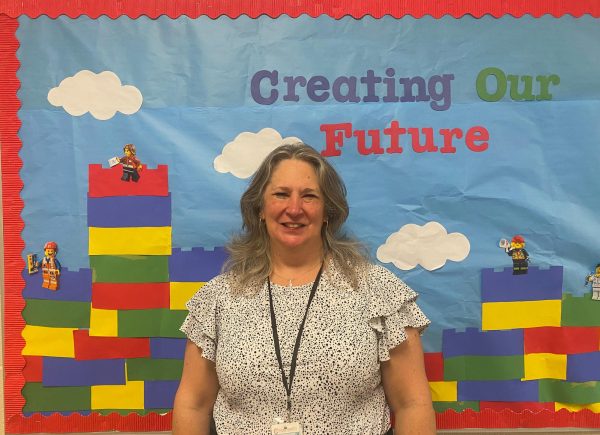Mrs. Evans’ special impact on NC
After moving from various other subjects, Mrs. Evans settled in teaching a literature class and taking the department chair position for Special Education at NC even with her affinity for math. Mrs. Evans took the responsibility of gaining expertise in each of the subjects to efficiently teach her students. Mrs. Evans remains involved in her classroom, helping students learn. “Our job is to be proficient in providing specialized instruction. Meaning, we need to be able to take whatever is being presented differently so that those things can more easily craft the concepts that are being taught,” Evans said.
December 17, 2019
Nationally, the right to equal education— mainly in regard to the rights of students with disabilities— became official in 1975, when President Gerald Ford signed the Education for all Handicapped Children Act into law: this act requires that all public schools include programs for students with special needs. President Ford wanted an efficient program, but unfortunately, the government back then lacked the necessary resources to properly implement these programs into the education system, so Ford waited to officially enact the legislation until 1978.
As she sits in her dimly lit Freshman Academy classroom shared with English teacher Mr. Cortez, Mrs. Colette Evans explains her busy schedule as department chair and teacher for NC’s special education program. After the birth of her first child, Evans quit her job, returning to work once her youngest began kindergarten. Later, Evans became more involved in her children’s schools, working as a substitute teacher for different schools.
“In 2006, I was offered a parapro position. I found that when I was subbing, I gravitated towards the kids that needed extra help,” Evans said.
With her position as the special education department chair at NC, Evans holds a significant amount of power within the program.
“I also have a caseload [and make an] IEP, which is an individualized education program that I am in charge of. Special Ed is the largest department at North Cobb, there are 32 of us. We have 25 teachers, seven parapros [and] almost 400 specialized students at North Cobb. We have six small-group unit classes[and] every student that has an IEP has goals and objectives of some kind that they have to be working towards. We have roughly 17 kids on our caseload that we have to keep track of and have a meeting for,” Evans said.
The special education program at NC not only helps students with learning their own way within the school, but it also takes steps to prepare them for life after high school, teaching them skills they can use in their future jobs.
“When they graduate from high school, they can go to this transition program where they start working on job skills so that maybe one day they might actually be able to hold a job of some type, even if [it] might be stocking shelves at Publix, which is fine,” Mrs. Evans said.
With IEPs, every student receives a different game-plan for their learning, depending on their range and severity of the disability. Their levels of disability can range from mild to severe.
While Mrs. Evans boasts of the exceptional special needs program at NC, she still emphasizes the need for improvement.
“[It would be] beneficial if we didn’t have quite as many students on our caseloads, because then we could be even more in tune with what is going on with each student,” Evans said.
With multiple students in classes with mental disabilities, teachers may find it difficult to maintain a stable classroom environment. Evans stressed that decreasing class sizes can improve the ability of students to learn.
Despite the struggles she faces, Mrs. Evans continues to strive in her environment and leave a mark within her community and amongst her colleagues.
“Mrs. Evans is an inspiring leader. She is extremely helpful and dedicated,” special education teacher Ms. Guidry said.

















